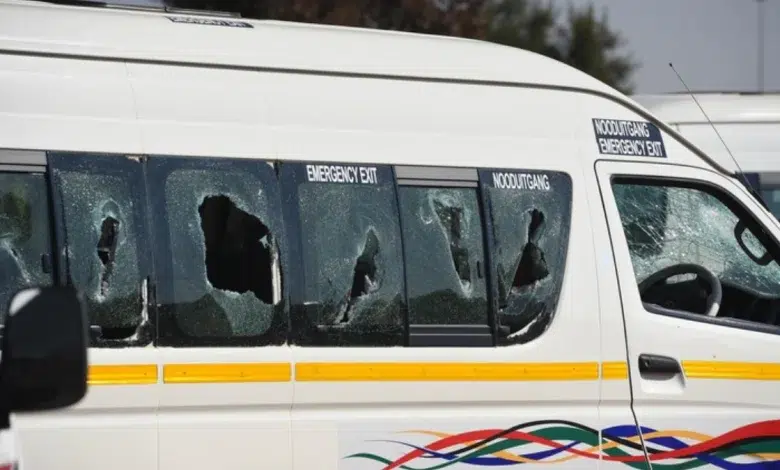New Inspectorate by Gauteng Transport Aims to End Taxi Violence

In a bid to stem the escalating wave of violence associated with taxis, the Gauteng Department of Transport has launched the Gauteng Transport Inspectorate. The new entity is tasked with restoring order, safety, and accountability in the province’s strife-torn minibus taxi industry. This industry has been marred by frequent violent conflicts.

ALSO READ: Smart Number Plates and Long-Term Plans Highlight Gauteng’s Roads Budget
The Rise of Taxi Violence
Gauteng has seen a staggering 59 fatalities due to taxi violence since January 2025. March 2025 was the deadliest month, accounting for at least 30 of the deaths. The violence has largely been driven by turf wars and route disputes. Additionally, the contentious issue of overlapping operating licenses among rival taxi associations contributes to the problem. This has led to shootings and other violent clashes, especially in areas like Soweto, Mabopane, and other urban areas.
These attacks include the shooting of three taxi marshals and the brutal murders of two taxi owners. These incidents have further fueled the crisis in the province. As the situation worsens, the Gauteng government has determined to act swiftly. They aim to take firm measures to quell such attacks.
Mandate of the Gauteng Transport Inspectorate
The new Gauteng Transport Inspectorate will focus on intensifying the regulation and enforcement of the minibus taxi industry. The specialized unit will collaborate closely with the South African Police Service (SAPS) and Metro Law Enforcement units. Their goal is to ensure that the industry operates within the ambit of the law.
- The inspectorate’s main objectives are:
- Bringing taxi-related killings and criminality to a halt
- Stringent enforcement of transport regulations
- Bringinging perpetrators of violence to justice
- Offering safety and accountability to commuters and taxi operators alike
Government Intervention and Mediation of Taxi Situation
Transport MEC, Kedibone Diale-Tlabela, has spoken tough in a bid to mediate the situation. Temporary closures of designated taxi ranks for six months will be carried out. This aims to disperse ongoing violent activities. Moreover, it provides space for structured negotiations between conflicting factions in the taxi industry.
In April 2025, the MEC facilitated a meeting among GNTA and SANTACO representatives. This resulted in a ceasefire agreement and the establishment of a Conflict Resolution Committee. The committee will oversee dispute resolution under government mediation. The Transport Inspectorate will run parallel to this committee. They will police taxi routes, probe permit irregularities, and facilitate compliance within the industry.
The Taxi Industry in Gauteng is committed to being part of the solution. We understand that change will not happen overnight, but we are determined to work collaboratively with all stakeholders to create a safer, more reliable, and more respected taxi service for our communities.
Together, we can address these pressing issues and pave the way for a brighter future for the taxi industry in Gauteng.
The MEC made it clear that the meeting was part of her consultative process with affected and interested stakeholders regarding her intention to implement section 91 on extraordinary measures in areas besieged by fatal violence.
[JOINT STATEMENT ON THE DECISIONS OF THE MEETING HELD AT KOEDOESPOORT IN PRETORIA ON 11 APRIL 2025 FROM 10H00 TO 14H30 BETWEEN THE MEC FOR ROADS AND TRANSPORT AND THE 10-ASIDE EXECUTIVE COMMITTEES FROM BOTH GAUTENG NTA AND GAUTENG SANTACO ON THE ESCALATING TAXI VIOLENCE IN GAUTENG PROVINCE]
Impact on Communities and Legislative Oversight
The violent nature of the Taxi Violence has had a deep effect on local communities. It has created mass commuter fear and disrupted the livelihood of many. In addition, the increasing violence has led to additional policing costs. This has brought development plans to a standstill in affected areas.
The Gauteng Provincial Legislature’s Portfolio Committee on Community Safety strongly supports the government crackdown. They condemned the indiscriminate attacks. These attacks have harmed innocent commuters and children caught in the crossfire. The committee also called for greater transparency in the industry. They asked for updates and better intelligence sharing between the police and the Department of Transport.
A Path to Stability
The formation of the Gauteng Transport Inspectorate signifies the provincial government’s determination. Their aim is to adopt a zero-tolerance policy for lawlessness in the taxi industry. Success in reducing taxi violence depends on cooperation among stakeholders. Hence, consistent application of the law and rebuilding citizen confidence is crucial.
MEC Diale-Tlabela emphasized long-term peace-building processes. Additionally, she instructed law enforcement agencies to target and dismantle criminal networks masquerading as legitimate taxi operators.
Gauteng’s top priority is always clear. They aim to safeguard lives, restore stability, and secure a safe and reliable public transport system for all.




